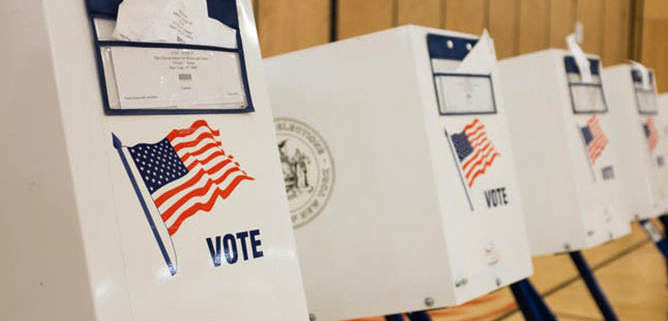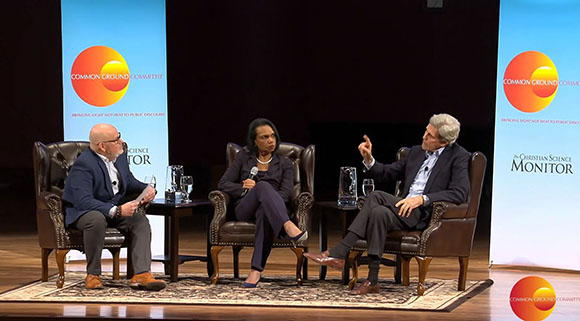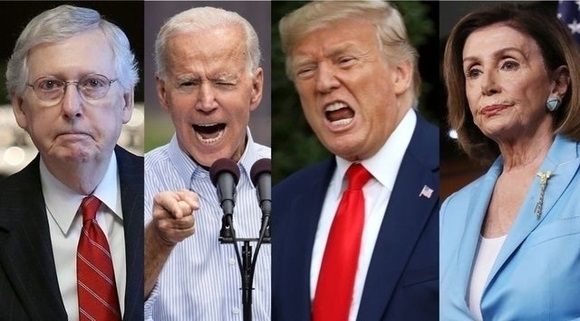Bruce Bond and Erik Olsen co-founders of Common Ground Committee seek to promote productive public discourse on the upcoming impeachment talks and hearings in this op-ed
Say you’re at a race track, watching a horse come around the bend when, all of a sudden, the rider is thrown off. You may be tempted to jump to any number of conclusions about what happened — the rider was careless, the horse was not sufficiently trained. But if you look closer, you’ll see the real problem: There was a snake in the grass.
Whether one supports or opposes the ongoing impeachment inquiry into President Donald Trump, we should all agree that we need to avoid that snake in the grass — in this case, the demonization of the other side. Former UN Ambassador Susan Rice said it best in an appearance on MSNBC last week: The biggest threat to our national security is domestic political divisions.
Unfortunately, what we have seen thus far are conversations packed with vitriol. Recently, Rep. Maxine Waters (D-Calif.) stated that the president needs to be “imprisoned and placed in solitary confinement.” Conservative radio host Rush Limbaugh, meanwhile, said “What we are in the middle of now, folks, is a Cold Civil War,” in describing how he sees Democrats’ approach to the president. This kind of rhetoric doesn’t just throw gas on the fire. It throws a tanker truck on it.
While it may be tempting to become absorbed by the disdain and cynicism that fuels our politics and the growing arguments over impeachment, Susan Rice’s comments about the impact of our political divides reinforce what we have believed for years: We must stop demonizing those with whom we disagree and shift our default model for public discourse from immediately degrading the other side to engaging with them respectfully to better understand their positions and why they hold them.
That means opening our thinking to accept facts that might not fit our narratives. It means disciplining ourselves not to let our favorite pundits reinforce our views without questioning if they are supported by facts. By doing those things, we can engage in more productive, less tense conversations with others about the serious issue of impeachment — an important consideration as the holiday season approaches.
The openness to facts and resistance to demonization are attributes of what we call “common grounders.” We describe common grounders as those seeking points of agreement on social and political issues through listening and productive conversation. Rather than shutting down friends or family members with differing opinions, common grounders listen to others in order to understand them. The goal is not necessarily to come to an agreement but to have a discussion based on facts, not insults. There will be much less risk of damaging relationships and you will be setting an example for others about what good looks like when it comes to political conversations.
While much of the discussion in D.C. has been toxic, there have been some politicians willing to favor facts over rhetoric. Rep. Mark Amodei (R-Nev.) caused an uproar when he appeared to support an impeachment inquiry. While he later clarified those remarks, he still insisted we “have to respect the process.” Rep. Elissa Slotkin (D-Mich.) promised her constituents that she would “look at the facts as they come and… do what my conscience calls me to do.”
Reps Amodei and Slotkin aren’t the only examples of politicians avoiding the trap of demonization. Recently, former Secretaries of State John Kerry and Condoleezza Rice shared a stage during a forum hosted in part by Common Ground Committee, the nonprofit we founded dedicated to bringing light, not heat, to public discourse. The leaders passionately but respectfully discussed high-stakes issues from North Korea to climate change and even found points of consensus.
All of these examples serve as models for our own public discourse as we continue to move deeper into the impeachment process.
We also implore media professionals to make a more concerted effort to not amplify party feuds and follies just for views and clicks. According to a late-2018 Gallup poll, only 45 percent of Americans trust that mass media reports the news “fully, accurately and fairly.” Journalists are supposed to be a check on government power, but fanning the flames of hostility for ratings and subscriptions makes it harder for people to thoughtfully assess the situation.
The snake in the grass that is demonization will always be present, but it’s within our power to avoid it.
As the impeachment inquiry continues, let us not become victims of its bite. Instead, refuse to demonize those with differing opinions. I sincerely seek to remain open to accepting facts as they become available and to understand our associates, friends, and family who disagree with us on the impeachment question.
This way we can heal the anger and polarization that pits us against each other and, as Susan Rice has warned, opens us up to trouble at the hands of America’s adversaries.
–This article was published in The Hill on October 22, 2019.






